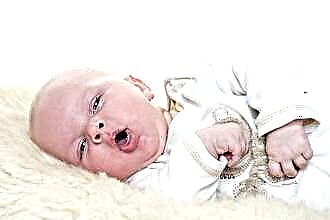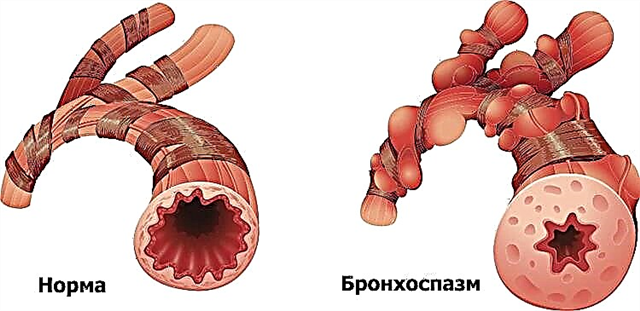Unfortunately, children get sick more often than adults. Their immune systems are not yet able to quickly deal with viruses and bacteria. Therefore, coughing in the first years of life is so common that many mothers do not pay attention to it. But this is wrong, since it easily turns into a chronic form, signaling malfunctions in the child's body, leaving them unattended, parents can provoke the development of serious diseases. Although quite often a cough, even a prolonged one, can have purely physiological reasons.
How to react correctly
 A long cough in a child, even without a fever, can be dry or wet. Dry is usually a sign of irritation or inflammation of the upper respiratory tract. Wet indicates that phlegm continues to accumulate in the baby's lungs or bronchi. Both types of cough have different causes and cannot be treated with the same methods.
A long cough in a child, even without a fever, can be dry or wet. Dry is usually a sign of irritation or inflammation of the upper respiratory tract. Wet indicates that phlegm continues to accumulate in the baby's lungs or bronchi. Both types of cough have different causes and cannot be treated with the same methods.
Before starting any cough treatment, you need to carefully observe the baby. Pay special attention to the following details:
- the intensity of the cough, its nature (abrupt, paroxysmal, single, suffocating, etc.);
- the frequency of its occurrence (how many times a day);
- is there a frequency, at what time of day it occurs more often;
- the amount of sputum secreted, its color, consistency, the presence of traces of blood;
- whether there is pain in the chest when taking a deep breath or coughing.
The more you tell the doctor about all these symptoms, the more accurately he will be able to make an initial diagnosis and determine what kind of treatment the child needs.
Causes of a prolonged cough
If the child continues to cough for some time after suffering a respiratory or broncho-pulmonary disease, then this is most likely a residual cough. It usually does not require special treatment and goes away on its own within a maximum of two weeks.
 A prolonged cough without fever can also be caused by a number of other reasons, which can presumably be established by its nature and the color of the expectorated sputum:
A prolonged cough without fever can also be caused by a number of other reasons, which can presumably be established by its nature and the color of the expectorated sputum:
- ARI, ARVI, colds. At the initial stage, they can pass without temperature at all. The cough is harsh, dry, hacking, with pain and redness in the throat.
- Chronic respiratory diseases. In the period of remission, the temperature is not given. The cough is often wet, recurring at a fairly pronounced frequency, with the release of yellow or green mucus.
- Chronic upper respiratory tract infection (laryngitis, tonsillitis, sinusitis). It is accompanied by a constant flow of infected mucus down the throat, causing an intermittent wet cough.
- Tuberculosis. Dangerous infectious disease. At an early stage, it causes constant slight coughing.
- Bronchial asthma. This suffocating paroxysmal cough is difficult to confuse with something. The child literally suffocates from him. The attacks usually occur at night.
- Allergy. A slight exposure to the allergen causes a cough, which is easily confused with tuberculosis. With severe allergies, the cough is moist, suffocating, with a profuse flow of snot, but without expectoration.
- Worms. They can also cause coughing, especially if their eggs are in the lungs. It is dry, infrequent, disappears for 2-3 weeks, and then reappears.
- Laryngeal irritation. The strength of the cough depends on the intensity of the stimulus - from a slight cough to choking attacks. Does not go away until the irritant is eliminated. It differs from allergic in the absence of snot and edema.
 Dry or cold air. Causes laryngeal irritation or spasm and hacking, barking cough. It passes after a cup of warm water drunk, but if the conditions in the room do not change, after a while it returns again.
Dry or cold air. Causes laryngeal irritation or spasm and hacking, barking cough. It passes after a cup of warm water drunk, but if the conditions in the room do not change, after a while it returns again.- Diseases of the gastrointestinal tract (reflux, gastritis, etc.), in which the contents of the stomach get back into the esophagus. Irritation of the esophagus causes a reflex dry cough, which most often occurs after eating or at night.
And these are only the TOP-10 reasons why a child's lingering cough can occur. Some of them are easily removable. Others require long-term complex treatment. But as it is already clear, it must start with a thorough diagnosis. After all, a cough is only a symptom and it can be completely removed only by eliminating the main cause of its appearance.
What to do?
 First of all, check for all possible non-infectious causes. Inspect the room for irritants and allergens. With irritants, of course, it's easier. But an allergen can be anything, up to food or chemical elements contained in paint on a child's clothes or toys. Therefore, if you suspect the allergic nature of the cough, but cannot find the culprit yourself, you should consult an allergist.
First of all, check for all possible non-infectious causes. Inspect the room for irritants and allergens. With irritants, of course, it's easier. But an allergen can be anything, up to food or chemical elements contained in paint on a child's clothes or toys. Therefore, if you suspect the allergic nature of the cough, but cannot find the culprit yourself, you should consult an allergist.
The mother usually knows about the presence of chronic diseases in the baby, and the child, as needed, undergoes a course of preventive therapy, which prevents periods of exacerbation.
But if a child does not have a cough without a fever after an acute respiratory infection or a cold for a month or more, the baby should be further examined to make sure that chronic bronchitis or sluggish pneumonia did not develop as a complication after the illness.
In all other cases, it is advisable to consult a doctor. Without laboratory tests and a comprehensive examination, it can be difficult to identify such serious diseases as tuberculosis, cystic fibrosis, chronic infections (mycoplasmosis, chlamydia, etc.). And just the only symptom showing that the child is out of order in these cases is coughing.
 Most chronic and infectious diseases of the respiratory system cannot be cured by any folk remedies. Moms trying to do this only waste time and allow the disease to deepen even more. On the other hand, competent medical treatment started on time leads to complete recovery in 90% of cases.
Most chronic and infectious diseases of the respiratory system cannot be cured by any folk remedies. Moms trying to do this only waste time and allow the disease to deepen even more. On the other hand, competent medical treatment started on time leads to complete recovery in 90% of cases.
During treatment, it is very important to strictly follow all doctor's prescriptions and recommended dosages of drugs.
You should not give up walking or restrict your child in communicating with peers (if he is not sick with tuberculosis). Chronic illnesses are usually not dangerous to others, and fresh air and positive emotions are very important for a recovering baby.
The only thing that needs to be avoided for now is playing too actively, during which a coughing fit may begin. It is also advisable that the child does not scream or sing loudly until the cough is completely gone. The larynx is already irritated, and overexertion of the larynx can damage the vocal cords. And it is advisable to follow simple preventive measures that will speed up a full recovery.
Prevention methods
A lingering cough does not appear suddenly in a child. And, like any disease, it is easier to prevent than to cure. We must take it as a rule - no cough, even a slight cough, is left unattended. Prolonged irritation of the larynx over time can transform into such a dangerous disease as asthma.
 But if the cough has already appeared, and you understand that it has no physiological reasons, you need to act:
But if the cough has already appeared, and you understand that it has no physiological reasons, you need to act:
- establish the cause as soon as possible;
- for allergic - identify and eliminate the allergen;
- remove from the room everything that can irritate the mucous throats and nose;
- check the air temperature and humidity (optimally 22 degrees and 60-70%);
- check if there is mold in the apartment;
- to do the prevention of the air conditioner;
- revise the diet, remove too spicy, salty, "heavy" food from it;
- if there is a suspicion of a cold or ARVI, start treatment immediately.
It is impossible in any case to carry out hardening procedures when a child has a prolonged cough, as well as to give him intense physical activity. First, you need to completely cure the baby, and then do all these, of course, useful things.
 But the use of immunomodulators will benefit him and help him to overcome the disease faster. These can be ready-made pharmaceutical preparations or proven folk remedies, for example, rosehip syrup or aloe juice.
But the use of immunomodulators will benefit him and help him to overcome the disease faster. These can be ready-made pharmaceutical preparations or proven folk remedies, for example, rosehip syrup or aloe juice.
It is important to remember that you can treat a child with home remedies no longer than 3-5 days. And if during this time there is no obvious improvement, the child is capricious, he has a slight, but constant cough - your methods are ineffective, and it's time to go for medical help! Lost time threatens with serious complications, and proper treatment is a guarantee of a complete and quick recovery.

 Dry or cold air. Causes laryngeal irritation or spasm and hacking, barking cough. It passes after a cup of warm water drunk, but if the conditions in the room do not change, after a while it returns again.
Dry or cold air. Causes laryngeal irritation or spasm and hacking, barking cough. It passes after a cup of warm water drunk, but if the conditions in the room do not change, after a while it returns again.

